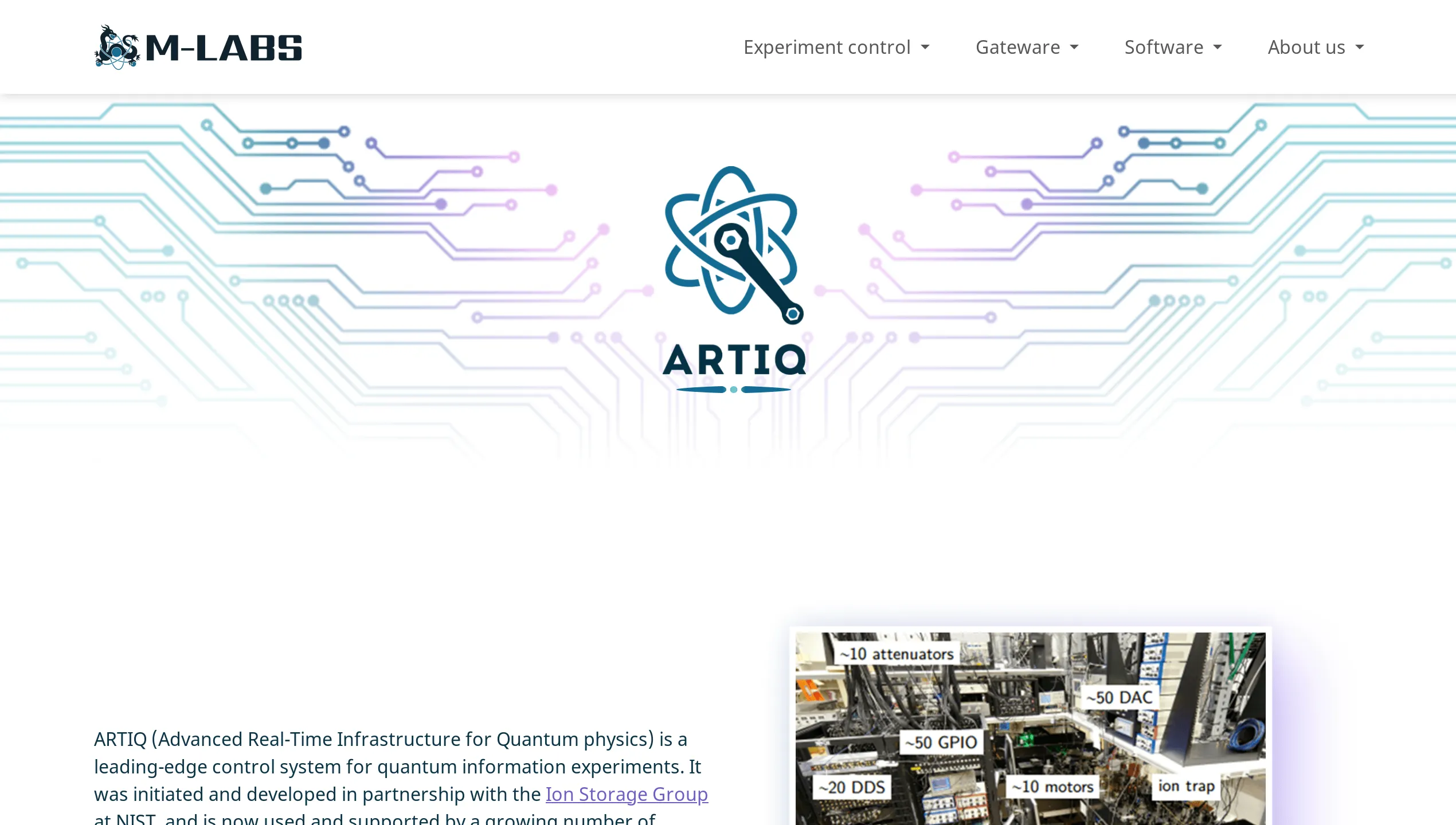ARTIQ
Control quantum experiments with precise timing and low latency using a flexible, programmable system. Features Python-based programming, FPGA execution, and open hardware.

This system provides a leading-edge control infrastructure specifically designed for quantum information experiments. Initially developed in partnership with NIST, it is now utilized by numerous research institutions globally, primarily in atomic physics but applicable more broadly.
Modern quantum research presents significant control challenges:
- Generating/receiving dozens of signals with extremely precise timing and phase coherence.
- Requiring very low reaction latency for schemes like quantum error correction.
- Implementing structurally complex protocols for quantum gates and algorithms.
- Needing a flexible and programmable system to adapt to evolving techniques.
- Managing a distributed, multi-platform environment with diverse equipment.
It addresses these by featuring a high-level, Python-based programming language. This language is compiled and executed on dedicated FPGA hardware, achieving nanosecond timing resolution and sub-microsecond latency. Time-critical code (kernels) on the FPGA interfaces seamlessly with Python code via RPC. The FPGA design is highly portable, and drivers for non-realtime devices can run on remote machines.
The project includes a GUI, experiment scheduler, and databases. It promotes design reuse through platform-independent, open-source hardware and software, aiming to streamline instrumentation design. The Sinara device family provides reproducible, modular, and well-supported open hardware.